Can the kidneys be damaged if the blood pressure has been normal for 10 days or so after stopping the antihypertensive medication?
This problem seems to be simple, but it involves a lot of knowledge related to hypertension. If you do not adjust the antihypertensive drugs without the guidance of the doctor, resulting in the occurrence of a number of complications is really not worth the loss, then today I will address this issue, to explain the relevant medical knowledge.
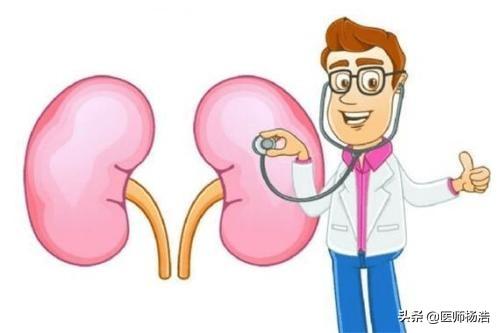
The description of the problem says "I have had mild hypertension for several years". What is mild hypertension and how can I control my blood pressure?
The categorization of hypertension is clearly defined in our hypertension prevention and treatment guidelines: if the systolic blood pressure (high pressure) is between 140~159mmHg and/or the diastolic blood pressure (low pressure) is between 90~99mmHg, then we call it mild hypertension. Although the blood pressure is not very high, long-term high can still lead to damage to target organs such as the heart, brain and kidneys.
However, the level of elevated blood pressure is not the only factor in determining whether or not to take antihypertensive medication. For those who suffer from mild hypertension, after an assessment of thein the event thatThe likelihood of cardiovascular disease in the next 10 years is more than 10%, that is to say, at least belongs to the high-risk group of cardiovascular disease, then we should add antihypertensive drugs to help us control blood pressure while improving our lifestyle; if the likelihood of cardiovascular disease in the next 10 years is 10% down, we can first monitor blood pressure for 1~3 months to assess the damage of the target organs, while improving our lifestyle Control blood pressure, if blood pressure does not meet the standard, then start antihypertensive medication.
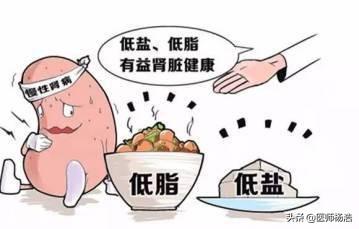
The description of the question mentions, "I recently tried to stop my antihypertensive medication and it has been within the normal range for about ten days." So, can I stop my antihypertensive medication? How should I stop them?
Generally speaking, the vast majority of hypertensive patients need to take antihypertensive drugs for a long period of time, or even for life, once they are on them. This is not because antihypertensive drugs are dependent and addictive, but because hypertension is now incurable (except for secondary hypertension), if you casually stop taking antihypertensive drugs, it is likely that the blood pressure will rebound, resulting in the possibility of target organ damage will be greater. Therefore, antihypertensive drugs, if you want to stop taking them, must be careful and cautious.
Generally speaking, if the blood pressure stays at a low level (usually around 100/60 mmHg, rather than in the normal range, as is commonly believed) while the lowest dose of antihypertensive medication is being maintained, you may consider discontinuing the antihypertensive medication. Therefore, there is a process of slow tapering of antihypertensive medication until it is discontinued to prevent the harm caused by a rebound in blood pressure.
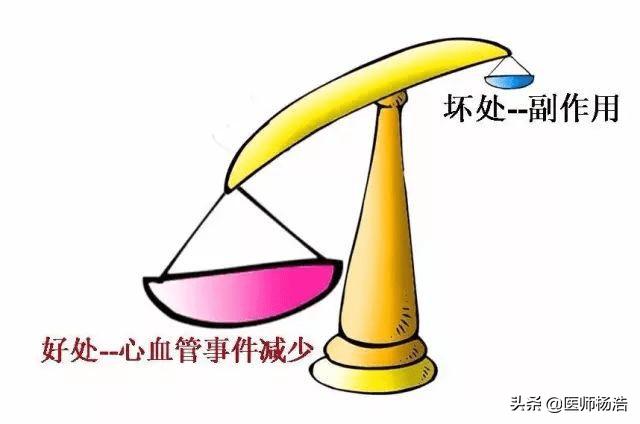
The description of the problem ends with, "The back is always a little swollen and the head is always a little dizzy, I wonder if it has any effect on the kidneys? "
Renal damage is indeed a very important target organ damage in hypertension. With the increasing prevalence of hypertension nowadays, hypertension will gradually become the leading cause of chronic kidney disease. Some studies found that for every 2-15mmHg reduction in systolic blood pressure, the risk of end-stage renal disease will be reduced by 35%; for every 16-20mmHg reduction in systolic blood pressure, the risk of end-stage renal disease will be reduced by 40%; for every 20mmHg reduction in systolic blood pressure, the risk of end-stage renal disease will be reduced by 60%. Therefore, good blood pressure control is especially important for hypertensive patients. Generally we need to control blood pressure below 140/90mmHg, while patients who already have chronic kidney disease need to control blood pressure below 130/80mmHg.
Whether or not there is kidney damage cannot be assessed by symptoms alone. Higher fluctuations in blood pressure, neurological disorders, endocrine disorders and so on may cause dizziness and other symptoms, and spinal injuries, muscle injuries, soft tissue injuries and other disorders can also cause back swelling and pain. Therefore, the specific causes of these symptoms, but also need to doctors to carry out relevant physical examination and auxiliary laboratory tests, etc. to help diagnosis.
Welcome to like, forward, leave a message, I am physician Yang Hao, focusing on common diseases, multiple diseases diagnosis and treatment, chronic disease management, health science. If you want to know more about medical knowledge, welcome to pay attention to this headline!
Kidney is an important organ to stabilize the internal environment of the body, but kidney is also a target organ often involved in hypertension. Since kidney damage is not easy to be reversed, hypertensive patients should try to avoid or delay kidney damage in order to improve the quality of life. So, if the blood pressure is still normal after stopping antihypertensive drugs for 10 days, will it damage the kidney? Next, Medical Senlution will analyze for you.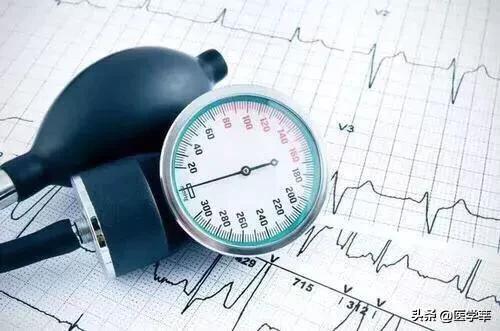
The damage to the kidneys caused by hypertension originates from the elevation of blood pressure, and the damage to the kidneys can be reduced by controlling the blood pressure to the standard. Although the blood pressure of some patients can be maintained in the normal range in the short term after stopping medication, the blood pressure may rise gradually with the progress of the disease. The damage to the kidneys caused by hypertension is a chronic process, and the damage to the kidneys will be gradually aggravated by the increase in blood pressure, except that there will be no significant symptoms in the early stage of the disease, and with the prolongation of time, creatinine may increase, indicating that the excretory capacity of the kidneys has declined, and proteinuria may also occur, and these abnormalities usually do not show any significant clinical symptoms, and therefore are not easy to be detected. Screening for kidney damage. If symptoms related to kidney damage such as oliguria and edema have already appeared, it means that the kidney damage is already quite serious and may have progressed to end-stage renal disease. It is worth noting that kidney damage itself can increase blood pressure, and increased blood pressure can continue to aggravate kidney damage, therefore, in patients with untreated hypertension, hypertension and kidney damage may form a vicious circle. Early intervention and rational treatment of hypertension is also aimed at avoiding an unmanageable situation. Since hypertension cannot be cured, lifelong maintenance treatment is required, and it is not recommended for hypertensive patients to stop taking medication at will.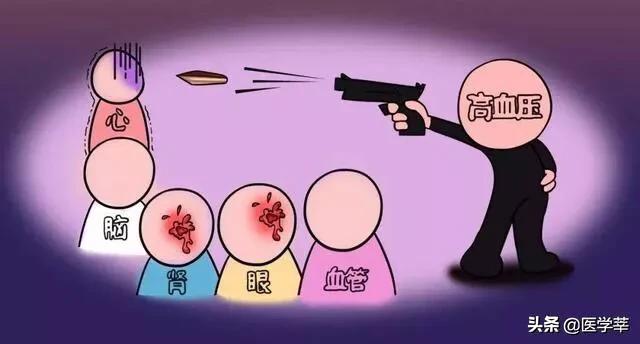
From the point of view of protecting kidneys, blood pressure can adversely affect kidneys whether it is a long-term sustained increase or short-term rapid fluctuations, therefore, hypertensive patients should minimize the fluctuation of blood pressure while maintaining blood pressure lowering, only by adhering to a healthy lifestyle and taking medication regularly according to the doctor's instructions can the above purpose be achieved, which is conducive to the protection of the kidneys. It should be noted that there are many causes of kidney damage, but if hypertension and other causes of kidney damage exist at the same time, the damage to the kidneys may be more serious, such as hypertension combined with diabetes mellitus, the need to control the blood pressure in a lower range, in order to reduce the damage to the kidneys: patients with hypertension without diabetes mellitus, control the blood pressure below 140/90mmHg; patients with diabetes mellitus, need to control the blood pressure below 140/90mmHg; patients with diabetes mellitus, need to control the blood pressure below 140/90mmHg. Patients with diabetes need to control their blood pressure below 130/80mmHg, and at the same time, they need to control their blood glucose up to the standard in order to reduce kidney damage. In terms of diet, controlling the intake of protein-rich food is more helpful to reduce kidney damage: hypertensive patients without kidney damage can maintain the daily protein intake at 0.8g per kilogram of body weight; hypertensive patients who have already developed kidney damage can maintain the daily protein intake at 0.6g per kilogram of body weight. Delay renal damage.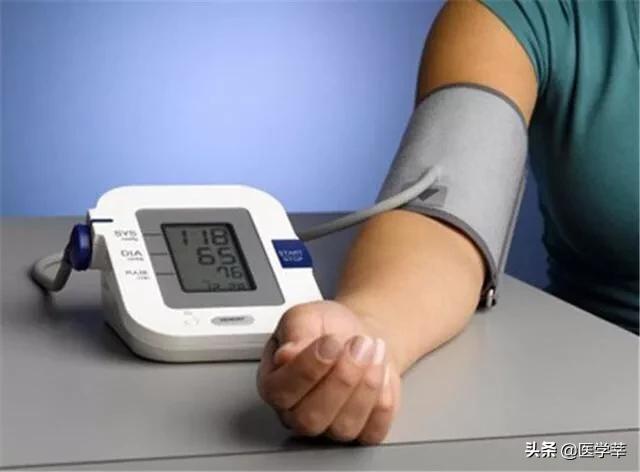
To summarize, the damage to the kidneys caused by hypertension is mainly due to the elevation of blood pressure, and kidney damage can be reduced by controlling blood pressure to the standard. Although some hypertensive patients can maintain their blood pressure in the normal range in the short term after stopping the medication, the blood pressure may rise gradually with time and increase the kidney damage. However, the damage to the kidneys caused by hypertension may be a chronic process, therefore, it is not recommended that hypertensive patients stop the medication arbitrarily.
Thank you all for reading!
Please correct me if I'm wrong! Feel free to ask and share in the comments section!
Note: The content of this article is intended as health science only, and is not intended as medical advice or opinion, and does not qualify as medical guidance.
Mild high blood pressure, recently stopped antihypertensive drugs, ten or so days to measure blood pressure are normal, but often still have uncomfortable feeling, blood pressure is not high, will still damage kidney health? Such a question is very interesting to explore carefully.
Can a person with high blood pressure stop taking antihypertensive medication?
For this problem, many friends have a deep-rooted idea that hypertensive patients can't stop once they take medication. Although most hypertensive patients need to take long-term medication to control their blood pressure, it is not absolute as to whether hypertensive patients can stop taking medication. In some mild hypertension patients, as long as they can ensure that their blood pressure stays in the normal range after stopping the medication, of course they can stop taking the medication. Let's take 2 examples to illustrate -
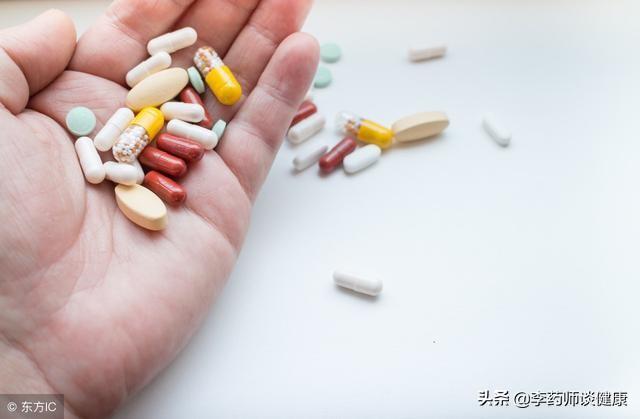
1. Some hypertensive patients, itself is mild, blood pressure just over 140/90 situation, no life intervention, a come up on the antihypertensive drugs, and gradually, through strict self-discipline, can be completely through the low-salt diet, weight control, quit smoking and alcohol, maintain a good work and rest aspects of life regulation to control good blood pressure, in this case, to maintain a good habit, after stopping the drug can also keep the blood pressure stable up to the standard, of course, you can stop using antihypertensive drugs. In this case, if you maintain a good lifestyle and stop taking the medication, you can keep your blood pressure stable and reach the standard, and then you can stop taking the antihypertensive medication.
2. For example, some mild hypertensive patients, even if they take a quarter of a tablet of antihypertensive drugs, their blood pressure has been lowered excessively, and even their blood pressure has been lowered to 100/60, and after discontinuing the use of antihypertensive drugs, their blood pressure has not increased or exceeded the standard, so of course, they can also discontinue the use of antihypertensive drugs.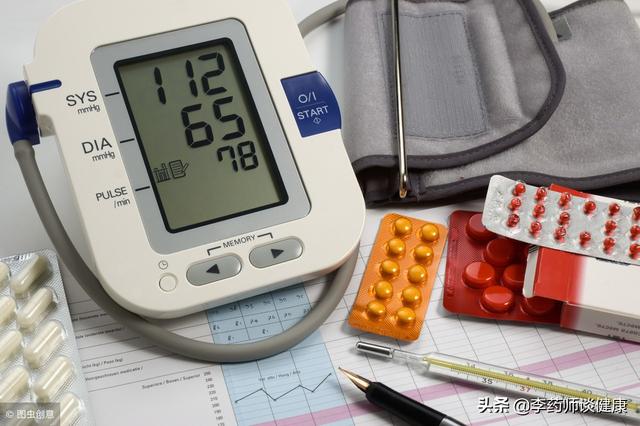
Therefore, for hypertensive patients, in some cases, it is possible to consider discontinuing antihypertensive drugs, but the prerequisite for discontinuing antihypertensive drugs is that the antihypertensive drugs are discontinued and the blood pressure can still be maintained at a stable level. What are the criteria for achieving a stable blood pressure? The optimal state is that the blood pressure is controlled below 130/80. If the average blood pressure can be kept below this level after stopping the antihypertensive medication, there is really no need to continue taking antihypertensive medication. This requires us to actively monitor and measure blood pressure for a long period of time after stopping the medication. During the initial one to two weeks of stopping the medication, you may want to measure your blood pressure every day, or even at different points in time on the same day, such as early in the morning and in the afternoon, and measure your blood pressure. If you confirm that your blood pressure is up to the standard, you can slightly increase the interval between the measurement of your blood pressure later on, such as measuring your blood pressure one or two times a week. If your blood pressure rises again, you should take antihypertensive medication, or you should combine it with the situation and choose the medication reasonably to control your blood pressure.
In this friend's case, it has been ten days since stopping the medicine, and the blood pressure has remained normal, which is a very good phenomenon. It is recommended to continue to maintain good and healthy habits, and to measure the blood pressure value on a regular basis, to confirm that the value of the blood pressure can be stably maintained at the level of the standard.
What happens when a hypertensive patient stops taking his medication and becomes unwell?
In the case of this friend, after stopping the medication for hypertension, the blood pressure has been maintained in the normal range, but the body will experience back swelling and pain, dizziness and other aspects of the symptoms, in this case, I personally recommend that, instead of always considering the blood pressure for the physical impact, we should consider the impact of other diseases or medications, as well as the impact of psychological factors.
Usually, not to mention is the blood pressure back to normal, is a mild high blood pressure problem, the body will seldom appear clear symptoms, back swelling and pain, dizziness, are not very much correlation with the value of the blood pressure, since the blood pressure is back to normal, it should be more to consider other aspects of the possibility, for example, if you take statin drugs to control blood lipids, it may cause dizziness, back muscle pain, the risk of an adverse reaction to the adverse effects of the risk of dizziness, the back muscle pain. For example, if the body develops cold symptoms, there is also a risk of muscle aches and dizziness, and these are possibilities that are worth considering.
Psychological factors should not be ignored, because of the discontinuation of medication, always worried that there will be such and such a problem, although the blood pressure is normal, but due to excessive worry, or psychological tension, when there are some minor discomfort symptoms, these feelings may be amplified, in fact, originally were not a big problem, but because of the psychological factors affecting the total feeling of here and there is uncomfortable, such a situation is actually not uncommon. Therefore, since the blood pressure has been within the normal range, and why worry too much about it, do a good job of blood pressure monitoring, do a good job of maintaining a healthy lifestyle, is the most important thing.
Do people with high blood pressure damage their kidney health when they stop taking their medication?
It is the high blood pressure that damages the kidney health. If your blood pressure value has returned to normal, there is no need to worry about the kidney health damage caused by blood pressure.
When the blood pressure rises, beyond the normal range, for the small blood vessels of the kidneys, also bear a greater pressure, the risk of small vessel sclerosis will be further increased, the occurrence of hypertensive nephropathy, are because of the long-term high blood pressure is not effectively controlled, and the high blood pressure affects the function of the kidneys, and gradually appeared renal function impairment of a kind of complication problem.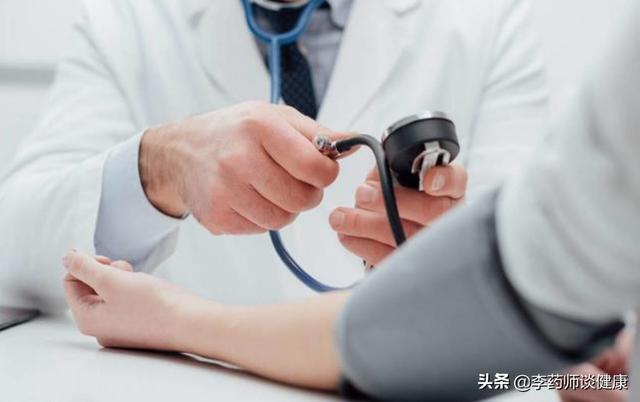
And if the blood pressure can be kept stable and up to standard for a long time, there is no need to worry about the health of the kidneys will be affected by the blood pressure, the health of the kidneys does not depend on stopping or not stopping antihypertensive medication, but depends on whether the blood pressure is elevated beyond the normal range, usually, only long-term high blood pressure affects the kidneys gradually damage the health of the kidneys.
Another point to note is that kidney health is not only affected by high blood pressure, and hypertension is often accompanied by high uric acid, diabetes and other chronic metabolic diseases, will also affect the health of the kidneys, some do not like to drink water, often hold urine, stay up all night, smoking, drinking a lot of alcohol and other aspects of bad habits, will also affect the health of the kidneys, therefore, want to protect the kidney's health, should be Therefore, if you want to protect the kidney health, you should do a good job in many aspects of the related chronic disease management and control, and at the same time, maintain good and healthy habits in life, only in this way, you can protect the kidney health.
Personally, I suggest you to talk to your doctor or learn a little bit of medical knowledge about hypertension diabetes. You currently hold or say that the inner thought of the knowledge is very wrong, thought your kidney injury is because of high blood pressure diabetes these western medicine, in fact, your kidneys are hurt because of high blood pressure diabetes disease is not very good control only, not these antihypertensive medicine diabetes medicine (of course, the premise must be under the guidance of a doctor, can be very responsible for you to say that these high blood pressure diabetes medicine produces the side effects of the harmful effects) Far less than hypertension diabetes bad, get positive benefits far higher than side effects, of course, if the kidney function is not good hypertension have hypertension medicine can not eat, the doctor will help you change the medicine adjustment)! Secondly your high blood pressure stabilized, but feel uncomfortable, think it is caused by high blood pressure medication, should be wrong, you can go to consult the doctor who prescribed you the medicine! Most of the symptoms you said should be your long-term high blood pressure, the body has adapted to the state of high blood pressure (but the damage to your body has always existed), and then lowered the blood pressure to become normal, your body fell out of adaptability, so the symptoms, and slowly adapted to the normal blood pressure, these discomforts slowly disappear, of course, listening to you, there is also the lowering of the speed of blood pressure is too fast! Good blood pressure lowering is not a good treatment in one step. Finally say a if you are primary hypertension, never have to believe that see a Chinese medicine to take Chinese medicine to cure hypertension, do not have to take medication! Blood pressure normalized or to eat to maintain high blood pressure forever in the normal blood pressure range, hypertension diabetes is a lifelong disease, to put it simply to eat a lifetime of medicine!
1 All antihypertensive drugs harm the liver and kidneys, see the instructions for antihypertensive drugs, which clearly state;
2 Elevated blood pressure is the human organism's response to bad habits and pathologies;
3 Taking antihypertensive medication is a marginal treatment;
4 Be proactive and serious about identifying the cause of elevated blood pressure, rather than suppressing the problem;
5 Taking antihypertensive pills is like the blocking method, not the unblocking method, which doesn't solve the dumber problem;
6 After identifying the underlying cause of elevated blood pressure, take an active approach to addressing it;
7 Blocking only builds up problems and eventually complications;
8 Exercise is good medicine; exercise is good medicine;
9 Scientific, regular exercise can effectively self-regulate blood pressure and keep it within normal limits.
In general, hypertensive patients who have been taking antihypertensive drugs for a long time should not stop taking antihypertensive drugs. People who have been taking antihypertensive drugs for a long time have an effect on kidney function.
Will!
Since ten or so days of stabilization, proving that the medicinal effects of the medicine is still acting in the body, and therefore the possibility of injury to the kidneys is very high, the degree of damage is just the size. There is also the general high blood pressure need to maintain the use of drugs. The later stages of hypertension are harmful to the body. No injury to the kidneys may try Chinese medicine, regulating hypertension to regulate the liver and tonifying the kidneys. There are no side effects.
I also found out in the past two years have high blood pressure, not every day to eat, the reason is that occasionally look to remember, but also just a few times! Listen to the doctor said antihypertensive tablets is best not to break, such as the feeling of taking medication blood pressure is good often time normal that also have to go to the hospital there after the doctor to measure the antihypertensive tablets to control half to take, such as the home has a measuring instrument for three consecutive mornings, do not wake up do not exercise, do not talk to feel or normal on it, for your reference.
The effects of antihypertensive drugs on the liver and kidneys are much less than the effects of high blood pressure without drugs.
This question and answer are from the site users, does not represent the position of the site, such as infringement, please contact the administrator to delete.